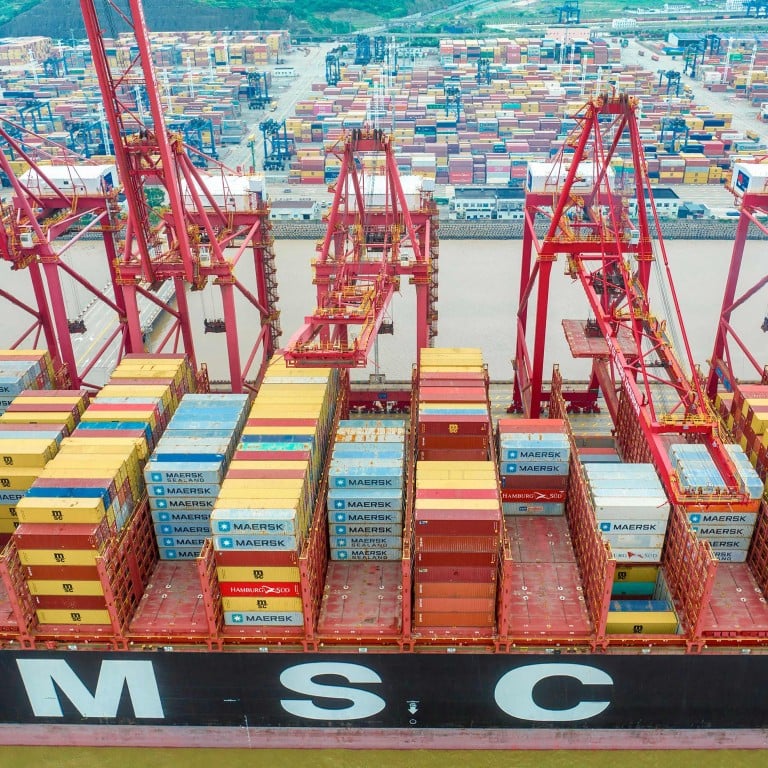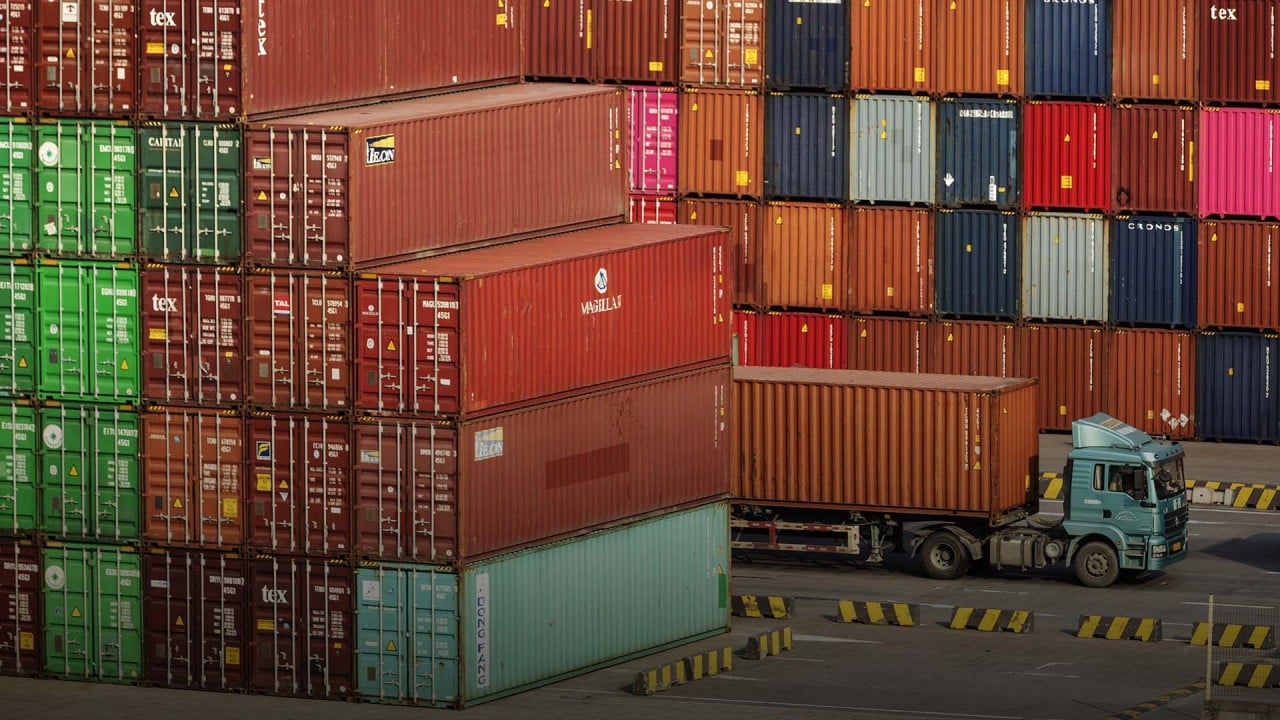
UK formally signs up to CPTPP trading bloc as it looks beyond Europe for trade post-Brexit
- The CPTPP comprises fellow G7 members Canada and Japan, plus Australia and New Zealand, alongside Brunei, Chile, Malaysia, Mexico, Peru, Singapore and Vietnam
- The trade bloc has been seen as a bulwark against Chinese dominance in the region, although Beijing has applied to join
The UK government on Sunday announced it had formally signed a treaty to join a major Indo-Pacific bloc, as it looks beyond Europe for trading opportunities post-Brexit.
Business and Trade Secretary Kemi Badenoch signed the accession protocol for the Comprehensive and Progressive Agreement for Trans-Pacific Partnership (CPTPP) in New Zealand.
It makes the United Kingdom the first new member and first European nation to join the bloc since it was created in 2018.
The United Kingdom has come through the robust accession process and the overall quality of its commitments has set a good precedent for future economies that wish to join,” New Zealand Trade and Export Growth Minister Damien O’Connor said in a statement.

The CPTPP comprises fellow G7 members Canada and Japan, plus the UK’s long-standing allies Australia and New Zealand, alongside Brunei, Chile, Malaysia, Mexico, Peru, Singapore and Vietnam.
It has been seen as a bulwark against Chinese dominance in the region, although Beijing has applied to join.
The members have been divided over the potential accession of China. While Malaysia, Singapore and Vietnam have supported China’s application, Australia and Japan have taken a cautious stance, accusing Beijing of coercion in its dealings with trading partners.
London has been pushing a “Global Britain” strategy since formally severing nearly 50 years of ties with its nearest neighbours in the European Union three years ago.
Sunday’s signing – the formal confirmation of the agreement for UK membership of the CPTPP after nearly two years of talks – will be the UK’s biggest trade deal since Brexit.
The government said it will cut tariffs for UK exports to CPTPP countries, which with UK membership will have a combined GDP of £12 trillion (US$15.7 trillion), and account for 15 per cent of global GDP.
The agreement is expected to come into force in the second half of next year, after parliamentary scrutiny and legislation.
Badenoch called the deal “a big boost for British businesses”, opening up opportunities for trade to a market of more than 500 million people and access to the wider region.
“We are using our status as an independent trading nation to join an exciting, growing, forward-looking trade bloc, which will help grow the UK economy and build on the hundreds of thousands of jobs CPTPP-owned businesses already support up and down the country,” she said.
“The UK’s formal accession to CPTPP marks a significant milestone for UK trade, enabling ambitious British businesses to connect with the world’s most exciting growth markets for start-ups, innovation and technology,” Ian Stuart, chief executive officer at HSBC UK, said in the statement.
UK accession to the CPTPP – the successor to a previous trans-Pacific trade pact that the United States withdrew from in 2017 under president Donald Trump – has been met with a mixed reception.
What is the CPTPP and why is China eager to join?
For Brexit supporters, it has been seen as a chance for the UK to join other trading blocs with faster-growing economies than those closer to home – and boost the country’s international geopolitical and economic clout.
But critics say it will struggle to compensate for the economic damage sustained by leaving the 27-member EU – the world’s largest trading bloc and collective economy.
Analysts estimate the eventual UK economic boost is £1.8 billion (US$2.2 billion) – a 0.08 per cent annual GDP increase.
The government’s spending watchdog, the Office for Budget Responsibility, in April forecast that the London’s Brexit deal with Brussels will reduce long-term productivity by 4.0 per cent compared to when the UK was a member.
Additional reporting by Kyodo, Bloomberg

.png?itok=arIb17P0)
